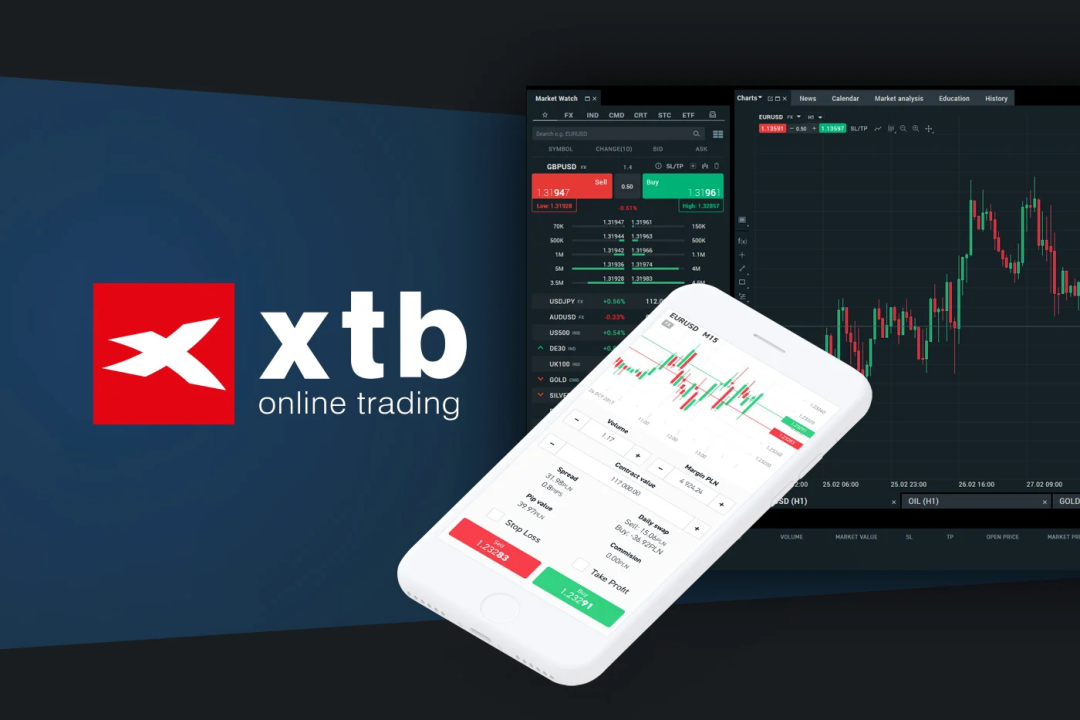Visa Stock Analysis: Is Visa a Strong Opportunity Ahead of Q4 Earnings?
$325.48
28 Jan 2026, 19:25

XTB.com

As tensions escalate between Israel and Iran, financial markets are once again grappling with the uncertainty that comes with geopolitical risk. Oil prices have surged, volatility has returned to equities, and investors are now forced to reassess their strategies in light of an increasingly unpredictable global landscape.
In particular, the recent Israeli airstrikes on Iranian infrastructure including energy assets and military targets have heightened fears of a broader regional conflict. One of the key consequences is the spike in oil prices. Analysts warn that if oil stays in the $90–100 per barrel range for an extended period, it could feed back into inflation and force central banks to reconsider or delay expected interest rate cuts. In short, what began as a regional security issue is now rippling through global financial systems, with real implications for inflation, growth, and asset valuations.
In this kind of environment, it’s natural for investors to feel overwhelmed. Headlines change by the hour, markets react quickly, and the line between risk and opportunity can be thin. That’s why having access to clear, expert guidance is crucial.
XTB, understands that knowledge is power especially in times of geopolitical stress which is why they offer a wide range of educational content, tailored for both beginners and experienced investors. Whether you're learning the fundamentals of macroeconomic indicators or diving into advanced trading strategies, XTB’s resources are designed to give you the confidence to make informed decisions.
Even more crucially, XTB provides access to live market insights from seasoned analysts, including Kathleen Brooks, one of the most respected voices in financial commentary. Her real-time analysis helps you understand not just what is happening but why it matters, and how you can position yourself accordingly.
As the Israel-Iran situation continues to unfold, and as oil, equities, and currencies react, investors need more than just data they need context, insight, and strategy. With XTB, you’re not navigating this volatile environment alone.
For a deeper dive into the current conflict’s impact on the markets, and for tools to help you act with confidence, explore XTBs latest coverage here: The Israel-Iran Conflict and Its Ripple Effect on Global Markets
CFDs are complex instruments and come with a high risk of losing money rapidly due to leverage. 75% of retail investor accounts lose money when trading CFDs with this provider. You should consider whether you understand how CFDs work and whether you can afford to take the high risk of losing your money.
As geopolitical tensions between Israel and Iran escalate, investors around the world are bracing for potential ripple effects across markets. With oil prices surging and central bank policies now hanging in the balance, the stakes are high not just for policymakers but for everyday investors navigating this volatile environment.
Recent Israeli airstrikes on Iranian military and energy infrastructure, including strategic assets like the Natanz nuclear facility and South Pars gas field, have significantly heightened concerns about regional stability. The possibility of further escalation especially involving oil transport routes like the Strait of Hormuz has already triggered a risk-off sentiment in financial markets.
Oil prices have climbed above $90 per barrel, and there is growing concern that a sustained period at these levels could drive inflation higher once again. As analysts have noted, if oil remains elevated in the $90–100 range for an extended period, it could disrupt the current trajectory of monetary easing. In short, investors hoping for rate cuts from the Federal Reserve or the European Central Bank may have to revise their expectations if energy prices continue to climb.
Historically, geopolitical conflicts like this often cause short-term market turbulence. But this time, the stakes are more complex. Energy markets, interest rates, and inflation expectations are all tightly interwoven, and a prolonged crisis could shift global asset flows dramatically.
Many investors are now re-evaluating their exposure to energy-sensitive sectors and considering safer havens such as gold, U.S. Treasuries, or defensive equities. At the same time, opportunities may emerge in commodities, energy stocks, or even undervalued growth assets once market sentiment stabilises.
In times of uncertainty, having access to reliable, up-to-date information is critical. That's where XTB can offer a powerful edge. As a global investment platform, XTB provides not just trading access but the education and insight investors need to make smarter decisions.
Through XTB’s education hub, investors can explore in-depth analysis of the Israel-Iran conflict and its market impact, helping to put today’s headlines into actionable context.
You’ll also gain access to real-time commentary and guidance from XTB’s market analysts, including respected expert Kathleen Brooks, whose clear, informed outlook brings comfort to those navigating market turbulence. Whether you're new to investing or a seasoned trader, having an experienced voice by your side can make all the difference.
From beginner-friendly tutorials to advanced technical breakdowns, XTB’s comprehensive educational resources are designed to support investors at every level especially in uncertain times like these.
The unfolding Israel-Iran crisis is a reminder of how quickly global markets can be shaken by geopolitical events. But it's also a moment for investors to re-center their strategy, lean on expert insight, and prepare for both risks and opportunities ahead.
CFDs are complex instruments and come with a high risk of losing money rapidly due to leverage. 75% of retail investor accounts lose money when trading CFDs with this provider. You should consider whether you understand how CFDs work and whether you can afford to take the high risk of losing your money.
(Source: XTB.com)